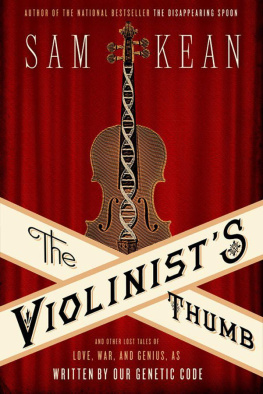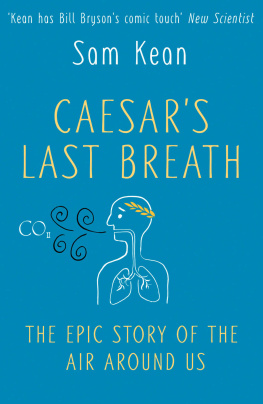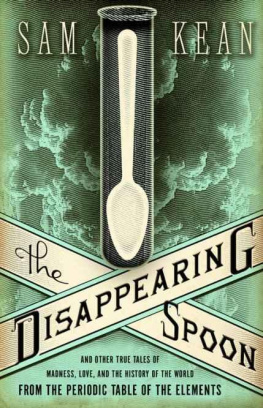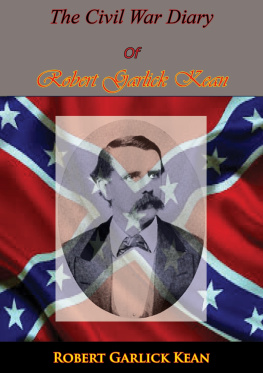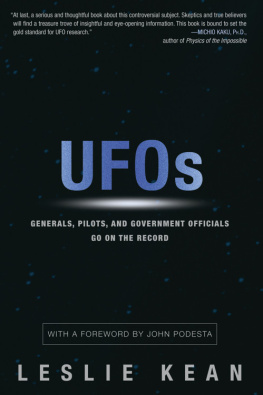
In accordance with the U.S. Copyright Act of 1976, the scanning, uploading, and electronic sharing of any part of this book without the permission of the publisher constitute unlawful piracy and theft of the authors intellectual property. If you would like to use material from the book (other than for review purposes), prior written permission must be obtained by contacting the publisher at permissions@hbgusa.com. Thank you for your support of the authors rights.

Life, therefore, may be considered a DNA chain reaction.
M AXIM D. F RANK -K AMENETSKII , U NRAVELING DNA

Acrostic: n., an incognito message formed by stringing together the initial letters of lines or paragraphs or other units of composition in a work.
N.B.: Ive hidden a DNA-related acrostic in The Violinists Thumba genetic Easter egg, if you will. If you decode this message, e-mail me through my website (http://samkean.com/contact). Or if you cant figure it out, e-mail me anyway and Ill reveal the answer.
T his might as well come out up front, first paragraph. This is a book about DNAabout digging up stories buried in your DNA for thousands, even millions of years, and using DNA to solve mysteries about human beings whose solutions once seemed lost forever. And yes, Im writing this book despite the fact that my fathers name is Gene. As is my mothers name. Gene and Jean. Gene and Jean Kean. Beyond being singsong absurd, my parents names led to a lot of playground jabs over the years: my every fault and foible was traced to my genes, and when I did something idiotic, people smirked that my genes made me do it. That my parents passing on their genes necessarily involved sex didnt help. The taunts were doubly barbed, utterly unanswerable.
Bottom line is, I dreaded learning about DNA and genes in science classes growing up because I knew some witticism would be coming within about two seconds of the teacher turning her back. And if it wasnt coming, some wiseacre was thinking it. Some of that Pavlovian trepidation always stayed with me, even when (or especially when) I began to grasp how potent a substance DNA is. I got over the gibes by high school, but the word gene still evoked a lot of simultaneous responses, some agreeable, some not.
On the one hand, DNA excites me. Theres no bolder topic in science than genetics, no field that promises to push science forward to the same degree. I dont mean just the common (and commonly overblown) promises of medical cures, either. DNA has revitalized every field in biology and remade the very study of human beings. At the same time, whenever someone starts digging into our basic human biology, we resist the intrusionwe dont want to be reduced to mere DNA. And when someone talks about tinkering with that basic biology, it can be downright frightening.
More ambiguously, DNA offers a powerful tool for rooting through our past: biology has become history by other means. Even in the past decade or so, genetics has opened up a whole Bibles worth of stories whose plotlines we assumed had vanishedeither too much time had lapsed, or too little fossil or anthropological evidence remained to piece together a coherent narrative. It turns out we were carrying those stories with us the entire time, trillions of faithfully recorded texts that the little monks in our cells transcribed every hour of every day of our DNA dark age, waiting for us to get up to speed on the language. These stories include the grand sagas of where we came from and how we evolved from primordial muck into the most dominant species the planet has known. But the stories come home in surprisingly individual ways, too.
If I could have had one mulligan in school (besides a chance to make up safer names for my parents), Id have picked a different instrument to play in band. It wasnt because I was the only boy clarinetist in the fourth, fifth, sixth, seventh, eighth, and ninth grades (or not only because of that). It was more because I felt so clumsy working all the valves and levers and blowholes on the clarinet. Nothing to do with a lack of practice, surely. I blamed the deficit on my double-jointed fingers and splayed hitchhiker thumbs. Playing the clarinet wound my fingers into such awkward braids that I constantly felt a need to crack my knuckles, and theyd throb a little. Every blue moon one thumb would even get stuck in place, frozen in extension, and I had to work the joint free with my other hand. My fingers just didnt do what the better girl clarinetists could. My problems were inherited, I told myself, a legacy of my parents gene stock.
After quitting band, I had no reason to reflect on my theory about manual dexterity and musical ability until a decade later, when I learned the story of violinist Niccol Paganini, a man so gifted he had to shake off rumors his whole life that hed sold his soul to Satan for his talent. (His hometown church even refused to bury his body for decades after his death.) It turns out Paganini had made a pact with a subtler master, his DNA. Paganini almost certainly had a genetic disorder that gave him freakishly flexible fingers. His connective tissues were so rubbery that he could pull his pinky out sideways to form a right angle to the rest of his hand. (Try this.) He could also stretch his hands abnormally wide, an incomparable advantage when playing the violin. My simple hypothesis about people being born to play (or not play) certain instruments seemed justified. I should have quit when ahead. I kept investigating and found out that Paganinis syndrome probably caused serious health problems, as joint pain, poor vision, weakness of breath, and fatigue dogged the violinist his whole life. I whimpered about stiff knuckles during early a.m. marching-band practice, but Paganini frequently had to cancel shows at the height of his career and couldnt perform in public during the last years of his life. In Paganini, a passion for music had united with a body perfectly tuned to take advantage of its flaws, possibly the greatest fate a human could hope for. Those flaws then hastened his death. Paganini may not have chosen his pact with his genes, but he was in one, like all of us, and the pact both made and unmade him.
DNA wasnt done telling its stories to me. Some scientists have retroactively diagnosed Charles Darwin, Abraham Lincoln, and Egyptian pharaohs with genetic disorders. Other scientists have plumbed DNA itself to articulate its deep linguistic properties and surprising mathematical beauty. In fact, just as I had crisscrossed from band to biology to history to math to social studies in high school, so stories about DNA began popping up in all sorts of contexts, linking all sorts of disparate subjects. DNA informed stories about people surviving nuclear bombs, and stories about the untimely ends of explorers in the Arctic. Stories about the near extinction of the human species, or pregnant mothers giving cancer to their unborn children. Stories where, as with Paganini, science illuminates art, and even stories whereas with scholars tracing genetic defects through portraitureart illuminates science.
One fact you learn in biology class but dont appreciate at first is the sheer length of the DNA molecule. Despite being packed into a tiny closet in our already tiny cells, DNA can unravel to extraordinary distances. Theres enough DNA in some plant cells to stretch three hundred feet; enough DNA in one human body to stretch roughly from Pluto to the sun and back; enough DNA on earth to stretch across the known universe many, many times. And the further I pursued the stories of DNA, the more I saw that its quality of stretching on and onof unspooling farther and farther out, and even back, back through timewas intrinsic to DNA. Every human activity leaves a forensic trace in our DNA, and whether that DNA records stories about music or sports or Machiavellian microbes, those tales tell, collectively, a larger and more intricate tale of the rise of human beings on Earth: why were one of natures most absurd creatures, as well as its crowning glory.
Next page
